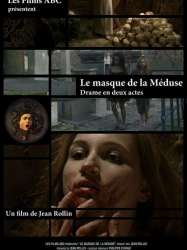Two White Snake Ghosts is a film of genre Fantasy directed by The Teng Chun
Two White Snake Ghosts (1934)

If you like this film, let us know!
Directed by The Teng Chun
Ouw Peh Tjoa (; Hokkien for Black and White Snakes), also known by the Malay-language title Doea Siloeman Oeler Poeti en Item (meaning Two Snakes, One White and One Black), is a 1934 film from the Dutch East Indies (now Indonesia). It was directed and produced by The Teng Chun. Adapted from Legend of the White Snake, a Chinese folktale, it follows a magical snake who passes as a human but ultimately dies. The film, now possibly lost, was followed by one sequel, Anaknja Siloeman Oeler Poeti, in 1936.
Synopsis
After meditating for several hundred years, a magical white snake transforms into a beautiful woman. Her competitor, a black snake, does likewise. The two compete for the love of a man named Khouw Han Boen. Ultimately Khouw agrees to marry the (former) white snake, but when her true identity is revealed he attempts to cancel their wedding. The snake-woman, crying, tells Khouw's boss that they are to be married, and ultimately Khouw is guilted into marrying her.Comments
Leave comment :
Suggestions of similar film to Two White Snake Ghosts
There are 7 films with the same director, 14181 with the same cinematographic genres (including 1329 with exactly the same 2 genres than Two White Snake Ghosts), to have finally 70 suggestions of similar films.If you liked Two White Snake Ghosts, you will probably like those similar films :

Boenga Roos dari Tjikembang (1931)
Directed by The Teng Chun
The plantation worker Oh Ay Ceng must leave his beloved, Marsiti, after his father arranges for him to marry his boss' daughter Gwat Nio. Accepting this in melancholy, Marsiti tells Oh to follow his father's wishes and leaves; she later leaves the plantation and dies. Gwat's father reveals that Marsiti had been his daughter with a native mistress and hints at another secret, one which he is unable to tell before he too dies.

Alang-Alang (1939)
Directed by The Teng Chun
Actors Hadidjah, Mohamad Mochtar
Suhiyat (Mohamad Mochtar), a young man who enjoys partying, is sent to manage a coconut plantation. He stays with a young widow named Rasmina (Lena) and falls in love with a local girl named Surati (Hadidjah); Rasmina, who is loved by Karta (Musa), also falls in love with Suhiyat. Meanwhile, a local thug named Rainan (Bissoe) has also fallen in love with Surati. To ensure success with Suhiyat, Rasmina pays Rainan to marry Surati. When Surati refuses, however, Rainan kidnaps her and escapes by boat. Their boat sinks and the two wash ashore on an island, not knowing that the other has survived. Surati befriends the local beasts, while Rainan finds other criminals and becomes their leader.

Sam Pek Eng Tay (1931)
Directed by The Teng Chun
Genres Drama
Themes Films based on mythology
Giok Eng Tay, the daughter of a rich man, falls in love with Nio Sam Pek, the son of a commoner. To ensure their family's well being, Eng Tay's father insists that she marry Ma Bun Cai (Ma Wencai (马文才)), the son of a regent. To ensure that this wish is fulfilled, Eng Tay is locked in her room while her father sends men to attack Sam Pek, who later dies of his wounds. After her marriage is arranged, Giok Eng Tay and her procession pass by Sam Pek's grave. A rain storm suddenly develops and Sam Pek's grave splits open; Eng Tay, wanting to be with her lover, runs to the grave and throws herself into it. The grave then closes and the storm dissipates.

Aceh's Knife (1940)
Directed by The Teng Chun
Genres Action
Actors Hadidjah, Mohamad Mochtar
Pirates have begun roaming through the Strait of Malacca, robbing ships and killing their crews and passengers. On one ship, three children survive: Maryam (Dewi Mada), who is captured and forced to live with the pirate captain (Bissoe), and brother and sister Daud (Mohammad Mochtar) and Rusna (Hadidjah), who escape to the jungle. Fifteen years later Rusna meets with the soldier Ali (Ferry Kock), who falls in love with her; meanwhile, Daud has fallen in love with Maryam, who serves as a dancer for the pirate captain. Ali and Daud go to the pirate ship and kill the crew; Ali takes out the captain with his rencong (an Acehnese dagger). They are able to live in peace, no longer fearing pirates.

Oh Iboe (1938)
Directed by The Teng Chun
Tjoa Kim Liong remarries after the death of his wife; his daughter, Loan, does not like her new step-mother. Tjoa becomes increasingly addicted to gambling, devoting all of his time to the habit. His business is surrendered to his Kian Hwat, who uses this newfound power to steal all of Tjoa's wealth. Years later Loan and her fiance, Goan Hin, are able to recover the funds.

Roesia si Pengkor (1938)
Directed by The Teng Chun
Actors Hadidjah
Hadji Saleh goes on a pilgrimage to a sacred mountain, leaving behind his wife and daughter Suti. Owing to her beauty, Suti receives many suitors. She, however, only loves Saari. Because of this love, Saari's friend Lihin (a spurned suitor) manipulates the police into imprisoning Saari. Upon his release, after being found not guilty, Saari must fight a would-be suitor named Usin before ultimately being recognised as Suti's husband-to-be. After the climax, it is revealed that Suti was often protected without her knowledge by her father, using the nickname "Si Pengkor".

Gadis jang Terdjoeal (1936)
Directed by The Teng Chun
Han Nio is in love with Oey Koen Beng. However, Han Nio's mother – hoping for a rich son-in-law to feed her gambling habit – arranges for Han Nio to marry a rich young man named Lim Goan Tek. Though they have a daughter, their life together is unhappy, and ultimately Goan Tek accuses of Han Nio of stealing from him and runs her out of the house. She falls ill and dies soon afterwards, but not before meeting Koen Beng. Learning of how his former lover had been treated, Koen Beng seeks out Goan Tek. However, before he can have his revenge, Han Nio's brother Eng Swan – the real thief – shoots Goan Tek, killing him.

Inland Empire (2007)
, 3hDirected by David Lynch
Origin USA
Genres Drama, Thriller, Fantasy, Horror, Crime
Themes Films about films
Actors Jeremy Irons, Justin Theroux, Harry Dean Stanton, Julia Ormond, Laura Dern, Nastassja Kinski
Rating68%





The film opens to the sound of a gramophone playing Axxon N, "the longest-running radio play in history". Meanwhile, a young prostitute, identified in the credits as the "Lost Girl", cries while watching television in a hotel room, following an unpleasant encounter with her client. The Lost Girl’s television displays a family of surrealistic anthropomorphic rabbits who speak in cryptic statements and questions. Occasionally, there are laugh track responses within these Rabbit scenes. These three elements become recurring motifs throughout Inland Empire.

The Mask of Medusa (2009)
, 1h15Directed by Jean Rollin
Origin France
Genres Fantasy, Horror
Themes Films based on mythology, Films based on Greco-Roman mythology, Films based on Greco-Roman mythology
Actors Jean-Pierre Bouyxou, Jean Rollin, Sabine Lenoël
Rating54%





Méduse a perdu la mémoire, victime d'un sort que lui a jeté sa sœur Euryale. Elle erre dans des lieux dont elle se souvient par bribes et finit par arriver au Théâtre du Grand Guignol, où se cachent Euryale devenue aveugle et Sthéno, la plus jeune des trois gorgones, réduite à l'état animal. Le gardien du théâtre et le collectionneur vont assister au dernier combat des deux sœurs. Sthéno, seule survivante, recouvre la parole et s'installe dans les sous-sols du Cimetière du Père-Lachaise. Mais elle s'ennuie et se prend d’amitié pour Cornelius, une jeune promeneuse.

Alien Terminator (1988)
Genres Science fiction, Thriller, Comedy, Fantasy, Action, Horror
Actors Franco Nero, George Kennedy, Deborah Moore, Mary Stävin, William Berger
Rating47%





L’auteur Ted Angelo découvre un vaisseau extraterrestre dans la jungle colombienne. Plusieurs organisations vont essayer de le faire taire. dont le KGB et la CIA, qui veulent maintenir ce secret enfoui pour toujours.
 Connection
Connection